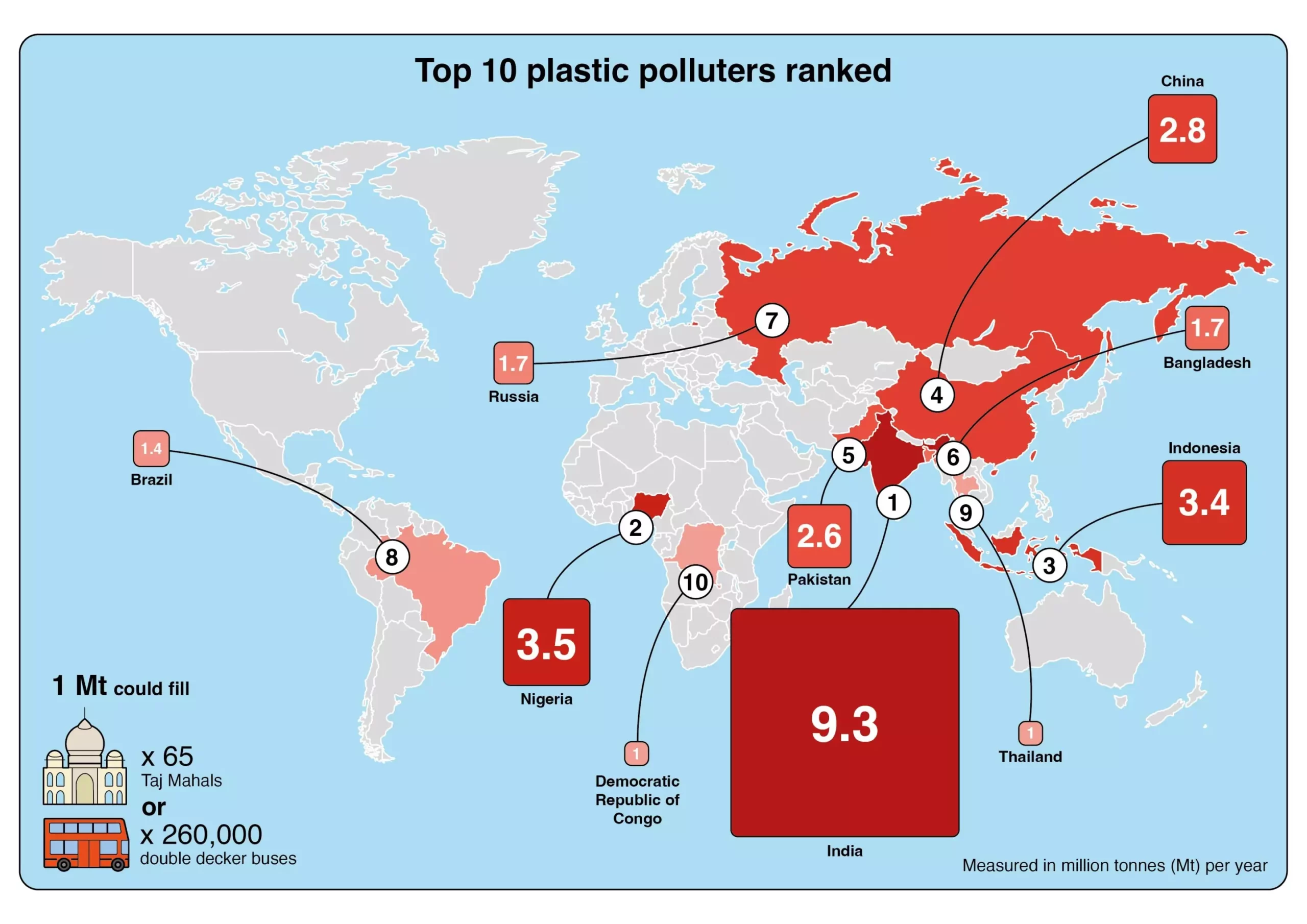The staggering scale of plastic pollution presents an urgent global crisis, demanding immediate action and robust awareness. A groundbreaking study from Leeds University has unveiled an alarming inventory that not only highlights the scale of uncollected rubbish but also reveals the dangerous practice of open burning of plastic waste. This article delves into the implications of the research findings, which serve as a pressing reminder that plastic waste management is not merely an environmental issue—it’s a public health crisis affecting millions.
Published in the esteemed journal *Nature*, the study utilized advanced artificial intelligence methodologies to assess waste management practices across over 50,000 municipalities worldwide. The results were startling: a staggering 52 million metric tons of plastic products entered the environment in 2020 alone. To put this in perspective, if this plastic waste were lined up, it would encircle the planet more than 1,500 times. The investigators found that a significant portion of plastic pollution, approximately 30 million metric tons or 57%, was incinerated without any safety measures, often occurring in residential areas, on streets, or at dumpsites.
The breakdown of this data reveals an essential aspect of the problem—over two-thirds of the plastic pollution stems from uncollected waste, with a shocking 1.2 billion individuals (or 15% of the world’s population) living without reliable access to waste collection services. This gap in basic infrastructure not only contributes to environmental degradation but threatens human health, as burning plastic emits harmful toxins associated with numerous health risks, including neurodevelopmental disorders and reproductive issues.
The study also identified unexpected plastic pollution hotspots, with India taking the lead as the largest contributor, eclipsing China, which was previously believed to be the top polluter. Following closely behind are Nigeria and Indonesia. The shift in this ranking underscores a critical need for updated perspectives on global plastic waste dynamics. Access to efficient waste management systems appears to correlate directly with pollution levels; as countries improve their waste processes, plastic pollution levels tend to decrease.
The revelations extend far beyond the immediate and obvious impacts of pollution, emphasizing the role of socioeconomic factors in waste management. Many countries, particularly in the Global South, are grappling with infrastructure deficits that turn them into hotbeds for pollution. The study points to a grim reality: while developed nations may have robust waste management systems, low and middle-income countries struggle with a high volume of uncollected plastic waste.
The disparity between the Global North and South regarding plastic waste management highlights a significant inequality. Conditions in the Global North often lead to lower plastic emissions per capita, attributed to comprehensive waste management practices and regulations. In contrast, countries in Sub-Saharan Africa showcase a paradox: although they exhibit low aggregate levels of plastic pollution, their per capita figures suggest they could soon become significant contributors due to poor waste management and rapid population growth.
This divide raises crucial questions about responsibility, accountability, and solutions. The countries that generate plentiful plastic waste and litter often possess the means to implement waste management systems, whereas those contributing less face systemic challenges that hinder their capacity to manage waste effectively.
Researchers advocate for immediate attention to the overwhelming issue of uncollected and improperly disposed of plastic waste. The findings signal a call to arms for policymakers to view accessible waste collection as an essential public service, akin to sanitation and water access. The study’s authors express hope that their research provides a vital baseline for decision-makers—not only to combat plastic pollution but to advocate for a new global treaty specifically targeting plastic waste management.
As Dr. Costas Velis articulated, it is imperative to shift our focus toward managing open burning and uncollected waste seriously. Failure to act could exacerbate an already critical state of affairs. Dr. Josh Cottom emphasizes that millions living without access to waste collection are left vulnerable, resorting to self-managed waste disposal methods that endanger public health.
The Leeds University study serves as a wake-up call amid a global predicament requiring urgent redress. Policymakers and individuals alike must take heed of these findings, advocating for improved waste management systems and robust international treaties aimed at curbing plastic pollution. The call to action is clear: as we strive for environmental sustainability, we must prioritize addressing the plastic waste crisis before it is too late—because unless we act decisively, plastic waste will continue to plague our communities and the planet for generations to come.


Leave a Reply